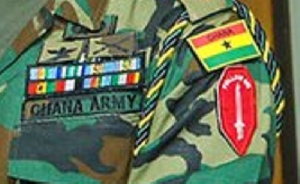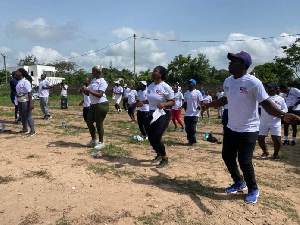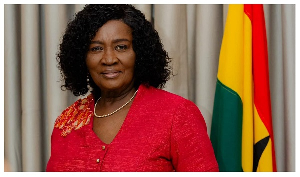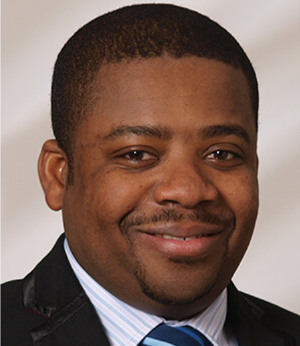The immediate past British Prime Minister, Tony Blair, once noted that “the State of Africa is a scar on the conscience of the world,” but recent developments in Bawku and other trouble spots in northern Ghana are not only scar but a serious threat to the peace, stability and development of the nation. The numerous protracted and politically motivated chieftaincy and land disputes with which the northern part of the country is infested, is a setback to economic, social and political development and must be condemned by all well-meaning Ghanaians irrespective of one’s ethnic, religious or political creed. It is however important to exercise tact and circumspection when commenting on the conflict situation in order not to inflame passions. It is important to note that it is not all northerners who fight, but only a few trouble spots that repeatedly explode from time to time.
It is very unfortunate and, indeed, unfair to classify all northerners as violent as some ill-informed callers to phone-in programmes and social commentators seem to portray. It is also intellectually deficient for people to say that “we are fed up with them,” and “that they should be allowed to fight themselves until they are tired.” Conflicts, religion and ethnicity are very delicate issues and every journalist or media practitioner worth his or her salt must be circumspect in reporting or discussing such matters. Radio discussions on such issues should therefore be reserved for experts.
It will not be helpful at this period of the crises to justify the Bawku and other conflicts in the north, but sight should not be lost of the fact that certain factors predispose people to conflicts. To better appreciate what is going on in northern Ghana, one needs to look at Africa as a whole. Europe is more peaceful than Africa not because Africans are less intelligent or violent by nature. In 2007, when the American Noble Prize laureate scientist, Dr. James Watson, remarked to the effect that the whites are more intelligent than blacks, he attracted a barrage of criticisms and condemnation worldwide. Describing it as baseless, unscientific and extremely offensive comments, the scientific community said those remarks were Dr Watson's personal prejudices. The question one needs to ask therefore is: why these numerous conflicts on the continent when Africans are not less intelligent than Europeans?
Our wise elders say when a man with healthy teeth is chewing his food awkwardly, one must be sure there is sand in it. The sand in the context of what is happening in northern Ghana includes poverty, illiteracy, ignorance and mass unemployment. At the heart of them all stands subtle but dangerously powerful political manipulation that serve as recipes for impunity. Experience has thought us that where these factors exist, peace and order become the casualties. I will never take up arms to fight no matter the circumstances. I believe education has opened my eyes a lot. I could not have resisted the temptation if I were left in the same environment and situation as my unfortunate brothers up there.
While we call on the people of Bawku give peace a chance, government and other policy makers should consider ways of improving the living standards of the people of the three northern regions. These regions have been victims of nature’s inequality and the colonial government paid no attention to their development because they lacked minerals and other resources to be tapped. Even in colonial politics, the north suffered discrimination. Though the Northern Territories became a British Protectorate in January 1902, the Clifford Constitution of 1916, the Guggisburg Constitution of 1925 and the Alan Burns Constitution of 1946 all did not consider the north for representation in the Legislative Assembly. Unfortunately, the various governments after independence have only paid lip service to bridging the gap between the north and the south. In effect, the gap keeps on widening.
One does not need to be an expert in conflict management to know that there is an easy solution to the conflicts. In February 2007, Ghanaians woke up one day to hear that the Ashanti Regional GJA chairman Samuel Ennin had been shot dead by gun men who had escaped. The police said they would investigate and I asked myself how on earth they were going to do that in the anonymous city of Kumasi. I was proved wrong when arrests were made later. That was brilliant.
In another instance some assailants stormed the Ya Na’s Palace in broad daylight and murdered the Overlord of Dagbon and over thirty other elders. The palace where that gruesome murder took place is about some hundred metres away from the Yendi police station. Yet up to date, not even a single soul has been arrested and charged in connection with the murder. The government of the day set up a committee to insult the intelligence of Ghanaians. Those in the helm of affairs, I believe, knew the consequences of leaving the culprits unpunished but what did they do? “Leave them! If they fight, no one will blame us. People will always say that’s how they are.” I believe that’s how they said or thought and left the murderers go free of charge.
President Mills has promised to delve deep into the heart of the murder and punish the culprits. This is a lasting solution because anyone who does not punish wrongdoing commands it to be done. If those in charge of the investigation cannot distance themselves from political manipulation, them I will beg of them to let wounded sleeping dogs lie. That step will either heal or hurt and must be taken cautiously.
I am a Christian and respect the message of forgiveness but how can I forgive and forget if someone killed my father and walks about freely without any punishment? The pain will forever remain. This is what is happening in Yendi, Bawku and Tamale.
Ola Rotimi says until the rotten tooth is removed, the mouth must always chew with caution. The perpetrators of these criminal acts are still walking about freely and have the assurance from faceless miscreants in political power that they will be protected. If the interior minister, Mr. Cletus Avoka will act his talk and punish culprits irrespective of their political affiliations, there will be peace in the north and all other trouble spots doted across the country.
The curfews and the numerous peace talks currently ongoing are not holistic measures of ending these seemingly unending disturbances. According to Albert Einstein Peace cannot be kept by force; it can only be achieved by understanding. The people, especially the youth, must be made to understand that they have something to live for, and that conflicts will only ruin their future as a people.
To my brothers in Bawku and other conflict areas in northern Ghana, I say enough is enough. After eighty-five years of being at each others’ throats, the people of Nkonya and Alavanyo have now resolved to smoke the peace pipe. The people of Bawku should learn from them. The people of Bawku and a few boys in Tamale have ensured that northern Ghana now connotes violence. There have been concerns that well-to-do people of northern Ghana build mansions down south but put up huts in their home towns. Who in his right senses will invest heavily in an area knowing that it will only take some aimless ne’er-do-wells minutes to reduce such investment to ashes on the least provocation? The fact is that it is embarrassing to say you are from the north when you hear nothing but the same stories.
All parties involved in the peace process should lend a helping hand to the National Peace Council to ensure an amicable resolution of the conflict. The media should also guard against irresponsible and inflammatory comments and cooperate to bring lasting peace to the troubled regions. For peace in the north means peace in Ghana.
Credit: Manasseh Azure Awuni [E-mail: azureachebe2@yahoo.com]
The writer is a Level 300 student of the Ghana Institute of Journalism, Accra.
Opinions of Thursday, 26 March 2009
Columnist: Manasseh Azure Awuni
Why “Northerners” Fight
Entertainment













